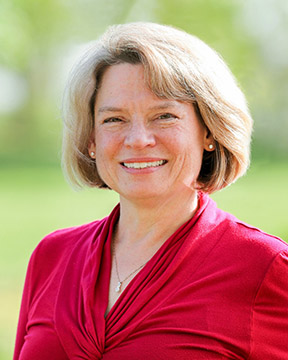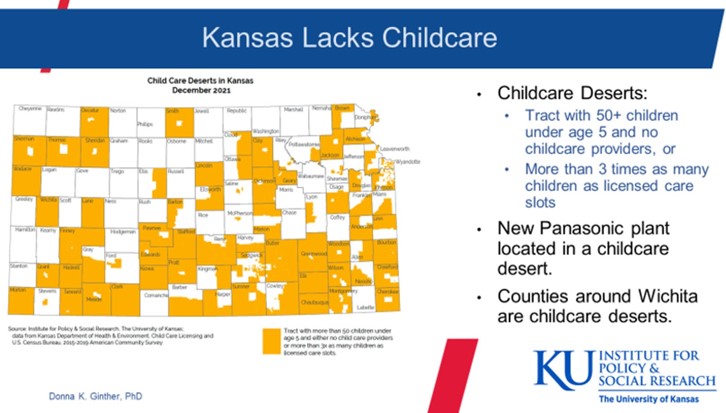Annual Economic Policy Conference Focuses on Building Economic Resiliency

Even as Kansas continues to emerge from the impact of the pandemic and its aftermath, and with many experts worried about many potential headwinds heading into the future, the annual Kansas Economic Policy Conference (KEPC) on October 22 focused on the critical challenges now on the table for the state and its policymakers (“Building a Resilient Kansas Economy”).
The morning keynote from conference organizer Dr. Donna Ginther, Director of KU’s Institute for Policy and Social Research and the Roy A. Roberts and Kansas Board of Regents Distinguished Professor of Economics, set the table by giving an overview of ongoing economic challenges. She explained that major challenges for Kansas included drought, population, workers, housing, childcare and broadband. Data suggest that eight percent of Kansans are not working due solely to lack of affordable childcare (versus five percent nationally). The new Panasonic plant by DeSoto is in fact being built in one Kansas’ many childcare “deserts”.
Kansas Secretary of Transportation Julie Lorenz emphasized how important healthy infrastructure was in terms of building thriving communities, noting that incoming federal infrastructure funds would be of great assistance to Kansas and other rural states.
In a panel discussion on local and regional perspectives, Dodge City Assistant City Manager Ernestor de La Rosa said that while several southwest Kansas counties are majority Hispanic, that population is still not adequately represented in terms of locally elected officials.
During a subsequent panel focusing on industry and infrastructure, former Kansas Secretary of Agriculture Josh Svaty said that management of aquifer depletion was becoming an increasingly critical issue in terms of long-term economic viability for the state.
Jade Piros de Carvalho, Director of the Kansas Office of Broadband Development, said that notwithstanding the infusion of federal money from the new infrastructure bill, universal connectivity was still not achievable at present.
KU Chancellor Douglas A. Girod kicked off the afternoon’s panel featuring state legislators with remarks about the importance of higher education.
“Higher education is a critical part of building a resilient economy for any number of reasons, including providing a diverse workforce,” Chancellor Girod said. “With over 7,000 degrees issued a year, we are importing talent from around the world; and many of these people end up falling in love with the state and staying here.”
Representative Rui Xu said that he believed sustainability and resiliency necessitates retaining young people and attracting new ones. He noted that the proliferation of special interest groups and the centralization of power in Topeka had become a growing problem in terms of the state’s ability to remain attractive to younger workers.
During her closing remarks, Dr. Ginther thanked the elected officials and other conferees and said that the discussion from policymakers had been particularly eye-opening.
“Our current political inefficiencies do seem to be a headwind against building additional resiliency,” she said. “And it is clear that having universal access to broadband is essential in generating more equity in our society.”

Lack of affordable childcare remains a major challenge for the Kansas workforce and economy moving forward.